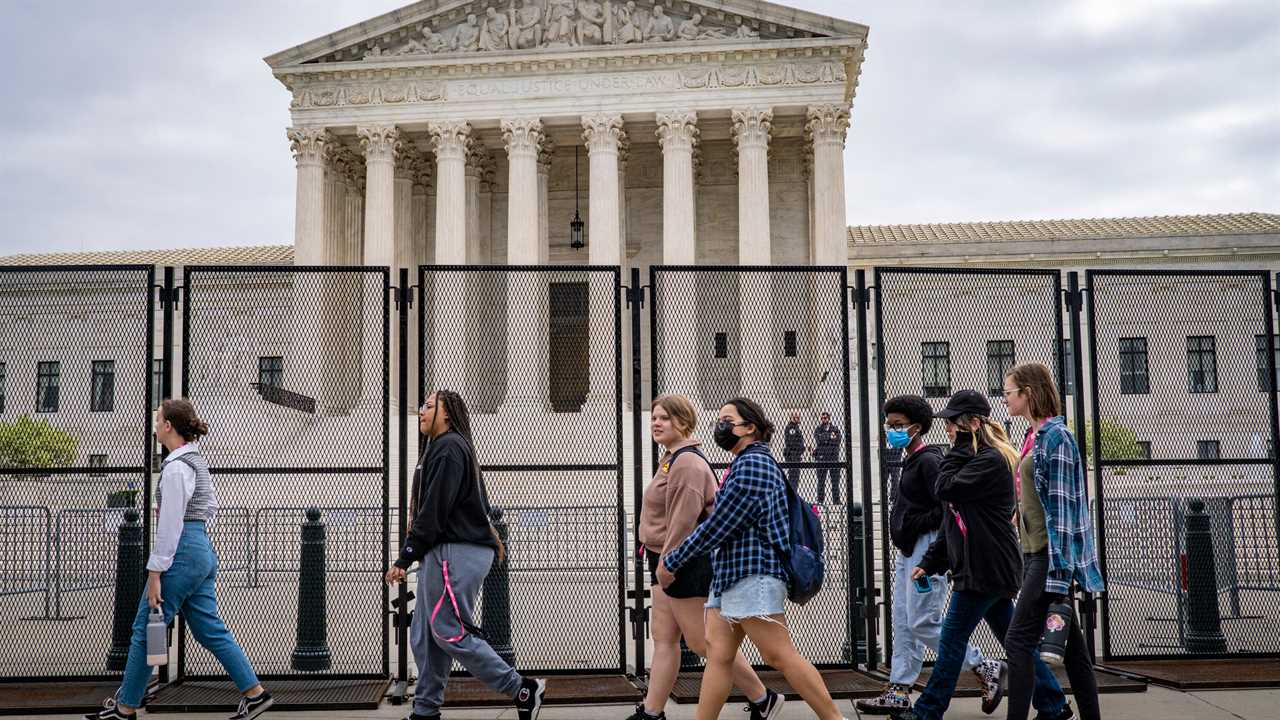
There is a well-established but uneven pattern in American law that applies to government secrets and the journalists who uncover them. The First Amendment generally protects the publication of a leak, but not the leaker.An authority no less than the Supreme Court has made it this way. In 1971, as the justices prepared to rule that the government could not prevent The New York Times from publishing the Pentagon Papers — one of the biggest leak cases in history — the source of that leak, Daniel Ellsberg, was indicted by a federal grand jury for theft.The court is now grappling with one of the most significant disclosures of a government secret since then: the release of a draft opinion that sets the framework for overturning Roe v. Wade.Only this time the leak came from inside the building. And there is no law or written code of conduct that suggests how an investigation into such a breach should proceed, or whether the journalists at Politico who brought the draft to light will be swept up in the kind of criminal investigation that top Republican lawmakers have demanded.Unlike the Pentagon Papers, the government study of the country’s involvement in Vietnam, the draft opinion was not classified information. Leaking classified information is a crime. Instead, the recent leak broke the Supreme Court’s conventions for secrecy, an offense that has been punishable with almost certain career death but little else.Given the magnitude of the leak and the aggressiveness with which federal prosecutors have pursued high-profile leakers and journalists in recent years, a criminal investigation is not unthinkable, legal experts said. And while no one is suggesting that Politico broke any laws in the course of publishing its article about the draft opinion, that does not mean the journalists involved would be spared from government pressure to reveal their sources if a grand jury was convened to consider charges against the leaker.“I think it’s pretty clear there is at least enough for a grand jury to investigate,” said Eugene Volokh, a First Amendment expert at the University of California, Los Angeles, law school. “The interesting question is to what extent there’s going to be a subpoena to a reporter.”Often the government will decline to pursue journalists, Mr. Volokh added, noting how that could end up happening case here. But as a legal matter, he said, “I think subpoenaing the reporter would be constitutional.”Media outlets and federal prosecutors have for decades been at loggerheads over whether journalists can be forced to reveal their sources in criminal leak investigations. In recent cases, the Justice Department has obtained phone records and emails from reporters at The Associated Press, Fox News, The Times and other outlets in pursuit of leakers. Many of those cases involved the release of classified information.ImagePolitico headquarters last year. Recipients of leaked material, like Politico, have been pursued by prosecutors in recent years. Credit...Ting Shen for The New York TimesThe Supreme Court is an institution that prides itself on a strict, lawyerly but ultimately nonbinding adherence to confidentiality.That has been enough to make the court the most impenetrable of the government’s three branches, its inner workings shrouded in secrecy and mostly absent from the bombshell tell-alls that are part and parcel of Washington journalism. (There have been some notable exceptions over the years, including a strikingly similar leak in 1973 to Time of the details of the Roe decision before it was announced.)“I’m not sure they have a guidebook for what the next step is going to be. I don’t think anyone does,” said Sonja West, a law professor at the University of Georgia who was a clerk for Justice John Paul Stevens. Ms. West did not defend the leak, but she did express concern about how far the investigation could go and whether “the next step is Politico and the press,” she said.Business & Economy: Latest Updates
Updated May 6, 2022, 10:50 p.m. ETClimate change is straining California’s energy system, officials say.Fed officials are on the defensive as high inflation lingers.Inflation concerns are at the center of an Ohio Senate contest.“We’re starting to get on First Amendment ice here,” Ms. West added. “And we need to keep that sturdy, and not let it get so thin that we start to see cracks.”Chief Justice John G. Roberts Jr. has announced an internal inquiry that will be led by the marshal of the court. So far, the Justice Department does not appear to be involved. The court did not respond to a request for comment. Politico, asked whether it anticipated a subpoena and how it would respond to one, declined to comment.Though the source is only the subject of speculation By: Jeremy W. Peters
Title: Supreme Court Leak Inquiry Exposes Gray Area of Press Protections
Sourced From: www.nytimes.com/2022/05/08/business/media/supreme-court-leak-press-protections.html
Published Date: Sun, 08 May 2022 09:00:18 +0000
Read More
Did you miss our previous article...
https://badpoliticians.com/us-politics/customs-and-border-protection-will-disband-secretive-critical-incident-team-teams
 UK PoliticsWorld PoliticsVideosPrivacy PolicyTerms And Conditions
UK PoliticsWorld PoliticsVideosPrivacy PolicyTerms And Conditions
